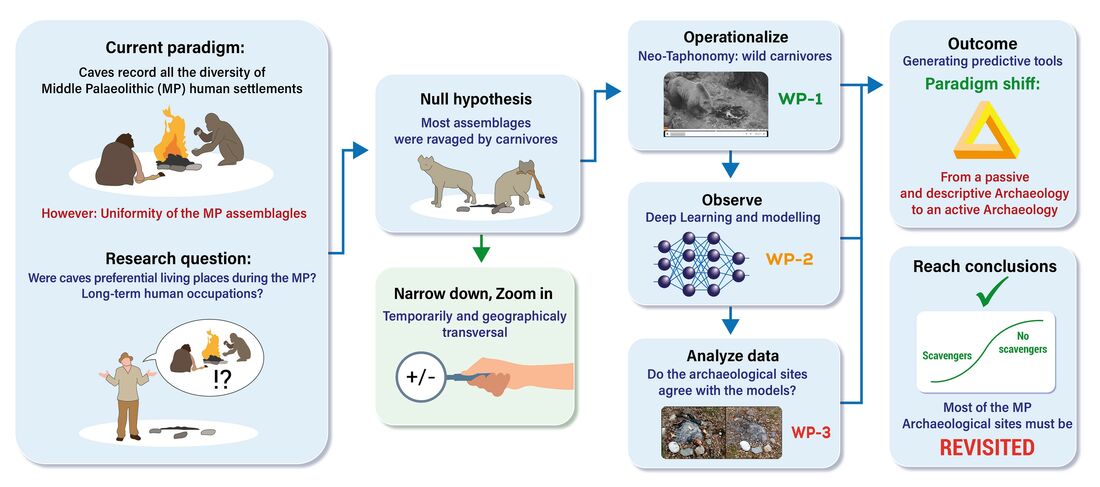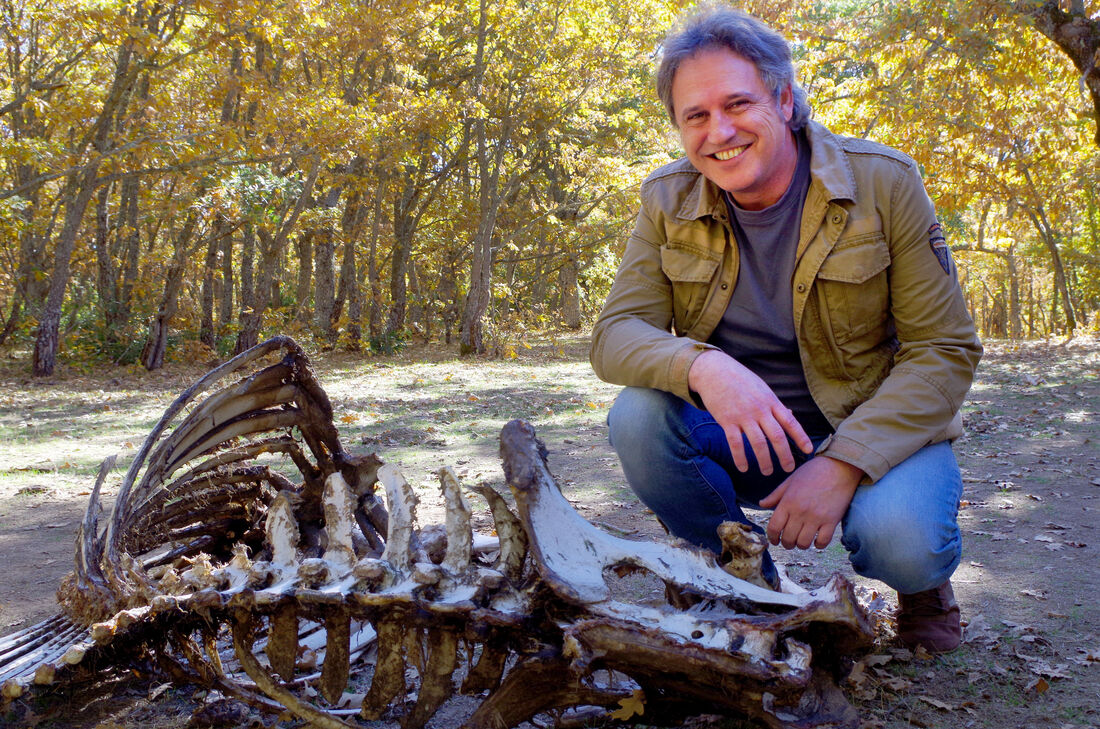Jordi Rosell receives an ERC Advanced Grant from the European Union to study the interaction of carnivores and humans in prehistoric habitat spaces
The Advanced Grants are the highest distinction awarded by the ERC to research projects at the frontier of knowledge
The SCAVENGERS project by Dr. Jordi Rosell, professor at the Universitat Rovira i Virgili (URV) e investigador del Institut Català de Paleoecologia Humana i Evolució Social (IPHES-CERCA), has been awarded an Advanced Grant by the European Research Council (ERC), the highest distinction awarded by this European body.
Anthropogenic sites are often the product of overlapped activities and/or occupations that also involve disruptive processes. The results are palimpsests with a disordered appearance that can confuse interpretations. The problem is worsened when some agents, such as carnivore scavengers, act on the archaeological record, causing the remains to disappear and leaving no obvious signs of their passage. This fact has important consequences for archaeological studies, especially when attempting to apply ethnographically derived theories constructed in high resolution temporal contexts. However, new interpretations that are more complete can overcome this problem if the behaviour of scavengers is modelled using controlled experimental programs with wild carnivores (Neo-Taphonomy).
SCAVENGERS consists of monitoring experimental reproductions of hearth-related assemblages (like those described in archaeological contexts) exposed to different species of wild carnivores: hyenas, lions, bears, wolves, and other smaller carnivores. The results will then be subsequently tested on different Middle Palaeolithic assemblages using Deep Learning through computer techniques based on convolutional neural networks. However, the main aim is to generate enough cross-sectional data that can be applied to all periods and geographic areas, overcoming the limits of traditional archaeological methods to make accurate inferences about past human behaviour.
The results of this project will contribute to the development of a new paradigm, changing some basic ideas about prehistory. There is a risk of generating a huge and unmanageable quantity of variables from neo-taphonomy.
However, accumulated information and experience will provide valuable data and information for other areas of knowledge, such as those related to naturalistic studies, animal behaviour, and management of natural resources/parks.



